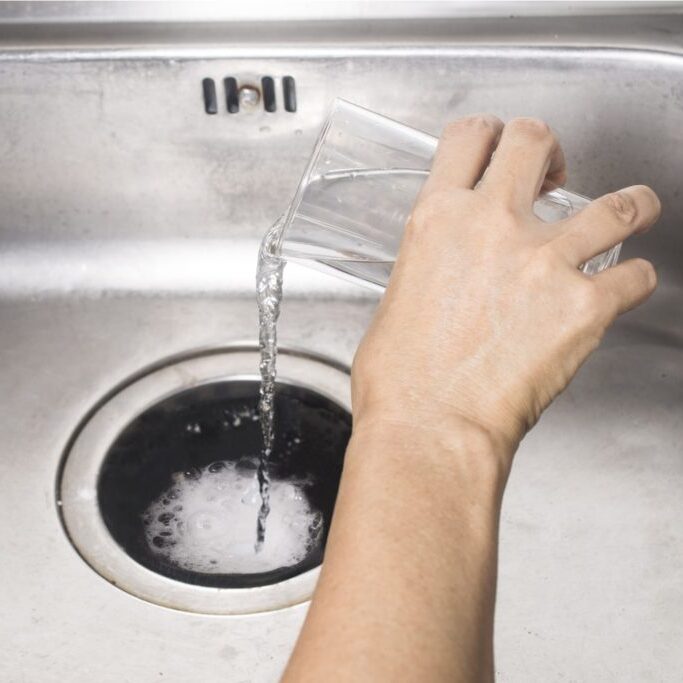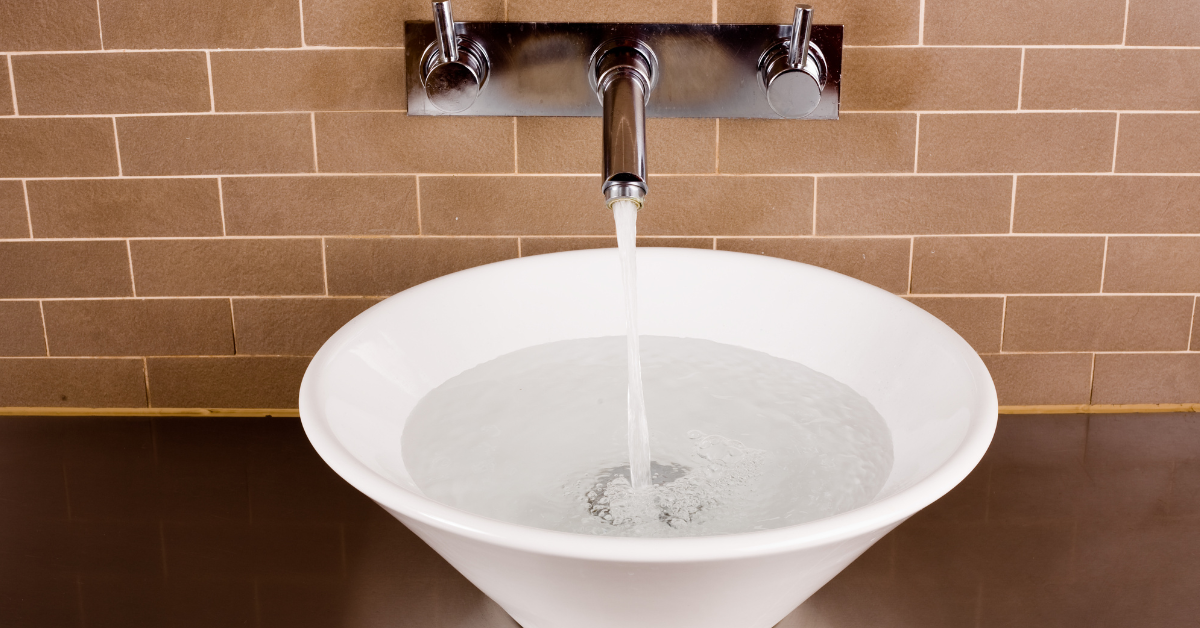Quick Ways To Repair A Slow-Draining Sink
Quick Ways To Repair A Slow-Draining Sink
Blog Article
Presented here underneath you will find additional helpful advice all about 4 Tips to Fix a Slow Draining Sink.

Introduction
We've all been there: You're brushing your teeth or washing your hands, and you observe the water merging in the sink. Instead of swiftly swirling down the drain, it lingers, turning your once-refreshing morning routine into a mini overload scene. A slow-draining sink isn't just annoying; it's frequently an indicator of larger plumbing problems lurking underneath the surface area. The good news is that the majority of slow-draining sinks can be repaired with a little know-how, a few basic devices, and some persistence. Ready to tackle this project head-on? Let's roll up our sleeves and dive right in.
Understanding the Root Causes Of a Slow-Draining Sink
Prior to you begin poking around in your pipes, it aids to recognize what could be triggering the slowdown. Understanding the source makes it simpler to select the ideal repair.
Devices and Products You'll Require
The right tools make all the difference. The good news is, you will not need a completely stocked plumbing's van to do the job.
Step-by-Step Guide to Fixing a Slow-Draining Sink
Now, allow's get into the nitty-gritty. This detailed procedure will direct you with simple techniques to recover your sink's drainage.
Action 1: Eliminate and Clean the Stopper
Often, the stopper (that small plug you push down to block water) is the very first culprit. Remove it very carefully and clean off any type of hair or gunk entraped around its base. Rinse it completely before putting it back in position.
Action 2: Use a Bettor to Dislodge Particles
Got that plunger ready? Placement it over the drainpipe and give it a few firm pumps. The idea is to develop suction that can loosen up any kind of obstruction. If you see littles debris drifting up, you're on the appropriate track.
Step 3: Try a Drainpipe Snake or Cord Hanger
If the plunger doesn't suffice, it's time to highlight the drainpipe serpent. Carefully feed it into the drain and spin as you go. You may feel some resistance-- that's most likely the blockage. Keep turning and pulling until you get rid of the obstruction. If you do not have a drain snake, a corrected wire hanger can operate in a pinch.
Step 4: Use a DIY Drainpipe Cleaner
An all-natural cleaner made from baking soda and vinegar can break down residual crud. Pour half a cup of cooking soda right into the drainpipe, adhered to by half a mug of vinegar. Allow it fizz for about 15 minutes, then flush with warm water. This chain reaction frequently does marvels for minor clogs.
Tip 5: Reassemble and Check the Sink
Placed whatever back together and run the faucet. Does the water currently swirl away at a commendable speed? If yes, offer yourself a pat on the back. If not, don't anguish-- there are still a few even more tricks up your sleeve.
Necessary Tools for Do It Yourself Repairs
A plunger is your best starting point. A small, sink-sized plunger produces suction that can remove small clogs. For even more relentless obstructions, a drain serpent (often called a plumbing professional's auger) functions wonders. A set of gloves, a flashlight, and possibly a pair of safety goggles are additionally helpful.
Recommended Cleansing Solutions
Mild meal soap and hot water can assist break down oily build-up. A blend of cooking soda and vinegar is a tried and true home remedy, and enzymatic cleansers supply a more environment-friendly strategy. Maintain chemical drainpipe cleansers as a last resource, as they can be rough on your pipelines.
Usual Offenders Behind Slow Drainage
So, what's clogging things up? Generally, it's a blend of daily particles-- think hair, soap scum, toothpaste residue, and leftover food bits. Gradually, these little bits collect and cling to the pipe wall surfaces, slowly narrowing the passage and making it harder for water to go through. Sometimes, mineral deposits from tough water can additionally contribute to the gunk, creating the best storm for persistent blockages.
When is it Time to Do Something About It?
If you discover the water draining slower than common, it's a good concept to step in earlier rather than later on. Waiting also long could lead to finish obstructions, unpleasant smells, or perhaps pipe damage. If the water takes more than a couple of secs to clear out after shutting off the faucet, consider it a red flag and get ready to place on your do it yourself hat.
Safety And Security First: Preventative Measures and Prep work
Prior to you launch into unclogging setting, consider security. You're taking care of possibly filthy water and debris, so slip on a pair of gloves. If you're making use of chemical cleaners, guarantee the space is well-ventilated and adhere to the guidelines on the tag.
Protective Equipment and Work Space Arrangement
Put down some old towels or cloths around the sink area to catch dashes. Eliminate any items that may get in your method, like soap dispensers or tooth brush owners. Ensure you have excellent illumination-- get a flashlight if needed.
Alternative Methods for Stubborn Clogs
Not all blockages are produced equal. If your sink still rejects to coordinate, take into consideration these different services.
Baking Soda and Vinegar Method
We currently discussed this, yet it's worth keeping in mind once again. This mild, green technique is more secure than chemical cleaners and often fairly efficient.
Enzymatic Drain Cleansers
Enzyme-based cleaners use natural microorganisms to digest raw material. They're a superb choice if you're seeking to prevent extreme chemicals. Simply remember, they may take a bit longer to work their magic.
Chemical Drainpipe Cleansers: Pros and Cons
Chemical cleaners can blow up through tough blockages quickly, yet they're not without drawbacks. They can generate warm and fumes, damages pipes if used exceedingly, and present environmental dangers. Use them moderately, and constantly adhere to the directions meticulously.
Preventive Measures to Maintain Your Sink Flowing
Avoidance is the most effective cure. By embracing a couple of easy practices, you can maintain your sink from reducing in the first place.
Routine Cleaning Behaviors
Clean down the sink basin and component location routinely. Remove hair or food particles before they have a possibility to wash down the drainpipe.
Staying Clear Of Dangerous Materials Down the Drain
Think twice prior to dumping coffee grounds, grease, or coarse vegetable scraps down the sink. These culprits cling to pipeline wall surfaces, producing blockages over time.
Regular Maintenance Checks
Schedule a fast month-to-month inspection. Run warm water through the sink for a couple of minutes, paying attention to the circulation. If it seems slow-moving, act fast prior to it ends up being a full-on clog.
When to Call a Specialist Plumbing Technician
In some cases, no matter just how hard you try, that obstruct just will not budge. That's when it's time to generate the pros.
Signs That Show a Much More Severe Concern
If your sink drains slowly regardless of several efforts, or if you discover water supporting in various other fixtures (like your shower or bathroom), you might have an extra serious plumbing issue lurking deeper in the system.
Stabilizing Do It Yourself Efforts with Professional Assistance
While DIY can conserve you cash and use a sense of accomplishment, there's no shame in calling a specialist. A professional plumbing technician can analyze your whole pipes configuration, making sure there's no underlying damage or long-term issue that can cost you a lot more in the future.
Contrasting Expenses and Long-Term Solutions
Before making a decision, think about the big picture. An economical, quick fix may resolve the trouble temporarily, however investing in a more permanent solution can conserve you money and stress in the long run.
Weighing the Expenditures of DIY vs. Expert Fixes
Do it yourself fixes frequently set you back little more than the rate of a plunger or a bottle of baking soft drink. Professional services, on the other hand, come with a price tag but might protect against repetitive concerns and expensive fixings later on.
Purchasing Top Quality Fixtures and Upgrades
If your sink's layout contributes to constant obstructions, it could be worth upgrading to higher-quality components or modifying the plumbing design. Consider this an investment in your house's functionality and convenience.
Verdict
A slow-draining sink can feel like a minor irritation, but it's commonly an indication that your plumbing requires a little tender loving care. By comprehending the root causes, utilizing the right tools and techniques, and dedicating to simple preventive measures, you can maintain your sink streaming openly. And when all else falls short, never wait to employ a specialist-- your home's pipes is worth the financial investment in treatment and maintenance.
4 Tips to Fix a Slow Draining Sink
Removing the Pop-Up
This is a great place to start when it comes to troubleshooting a slow draining sink. If your sink has a pop-up, carefully take it out and remove debris that has built up around the tool. This will also allow you to see if there are any significant blockages in the drain that you can pull out on your own to help clear up the issue.
Use a Zip-It Tool
Like a snake for a large drain, a zip-it tool helps clear out any debris or hair from a sink drain. A tool like this can be used with a drain that pops out or not as it s thinner than most snake-like tools.
Use a Drain Cleaner
Whether making an at-home cleaner or buying a solution at the store, this is a common fix many turn to when it comes to a slow draining sink. There are several options available for purchase at local supermarkets, but for those who prefer to create their own solution, one of the most common is the following.
How to Unclog a Drain Naturally
Pour boiling water down the drain Pour cup of baking soda down the drain Pour cup of vinegar down the drain Wait 10 minutes Pour boiling water down the drain again Turn on the hot water faucet to clear out the solution Use a Plunger
As a worst-case scenario option, a plunger may be a good option for those who are still struggling to get debris out of their drain. This could be especially useful if there is a large item that you suspect may be significantly stuck down the drain.
https://www.abaileyplumbing.com/blog/2021/august/4-tips-to-fix-a-slow-draining-sink/

I recently found that article on 7 Ways To Fix A Slow-Draining Sink Before You Call A Plumber while doing a search on the internet. Sharing is nice. One never knows, you will be helping someone out. I praise you for being here. Come back soon.
Visit Homepage Report this page